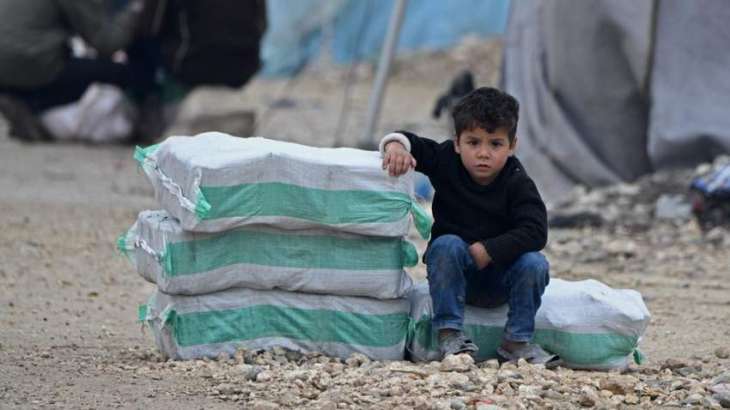The UN Office for the Coordination of Humanitarian Affairs (OCHA) is urging the UN Security Council to overcome differences and renew the authorization for the cross-border humanitarian aid from Turkey to Syria through the two border crossings in northwest amid COVID-19 pandemic and serious humanitarian concerns, OCHA regional spokesperson for the Middle East and North Africa David Swanson told Sputnik
GENOA (Pakistan Point News / Sputnik - 10th July, 2020) The UN Office for the Coordination of Humanitarian Affairs (OCHA) is urging the UN Security Council to overcome differences and renew the authorization for the cross-border humanitarian aid from Turkey to Syria through the two border crossings in northwest amid COVID-19 pandemic and serious humanitarian concerns, OCHA regional spokesperson for the middle East and North Africa David Swanson told Sputnik.
The current UN mandate of the cross-border mechanism through the two border crossings at Bab al-Salam, which leads to the Aleppo region, and Bab al-Hawa, which leads to the Idlib region, expires on Friday. So far, the Security Council member states have been unable to reach an agreement and adopt a new resolution, with Russia and China arguing that aid can increasingly be channeled through the Syrian authorities.
"It is imperative that the Security Council renews the cross-border operation, particularly in the context of the COVID-19 pandemic. No one is safe until all are safe. Health partners need to be able to reach people across Syria through all modalities," Swanson said.
According to the OCHA spokesperson, the cross-border aid operation is "a lifeline for 2.8 million people in north-west Syria."
"There is currently no alternative that can match the scale and scope of the cross-border operation," Swanson said.
The renewal of the permit will be "an important and vital step" in helping control the coronavirus outbreak, Swanson said.
"A combination of more cross-border and crossline access to the north-east is required to sustain, and preferably increase, humanitarian assistance and meet the needs in the northeast," he added.
According to OCHA spokesman, the cross-border operation from Turkey to the northwest of Syria continues to respond to the needs of millions of civilians. In June alone, some 1,759 trucks provided life-saving assistance to more than 6 million women, children and men, while May recorded the highest number of UN humanitarian aid trucks crossing per month since the establishment of the mechanism in 2014, with 1,781 trucks crossing from Turkey.
On Wednesday, Russia and China vetoed the draft resolution proposed by Belgium and Germany, while the other 13 Security Council members supported it. Russian Ambassador to the UN Vassily Nebenzia, in a statement explaining the vote, said that aid deliveries should be coordinated with the Syrian government.
On Thursday, the UN Security Council voted down a Russian draft resolution, which proposed to authorize humanitarian aid delivery through one checkpoint in Turkey for half a year.
Later on Thursday, Russia introduced another UN Security Council draft resolution proposing to halve the number of crossings but to give authorization for one year (compared to six months in the previous draft), Russian Deputy Permanent Representative to the United Nations Dmitry Polyanskiy said in a statement. The draft proposes to allow cross-border humanitarian deliveries to Idlib in Syria through crossing point Bab al-Hawa, as it accounts for more than 85 percent of total volume of operations, according to Polyanskiy.
The UN Security Council has been extending the existing cross-border delivery mechanism every year since its establishment in 2014. The system allowed the United Nations and its partners to use the border-crossings in Turkey, Iraq and Jordan to deliver humanitarian aid to Syria.
In December 2019, Russia and China vetoed a resolution that sought to extend the mechanism, and the UN Security Council adopted a compromise resolution that paved a way for aid deliveries for another six months, but limited the number of border-crossings to two.




